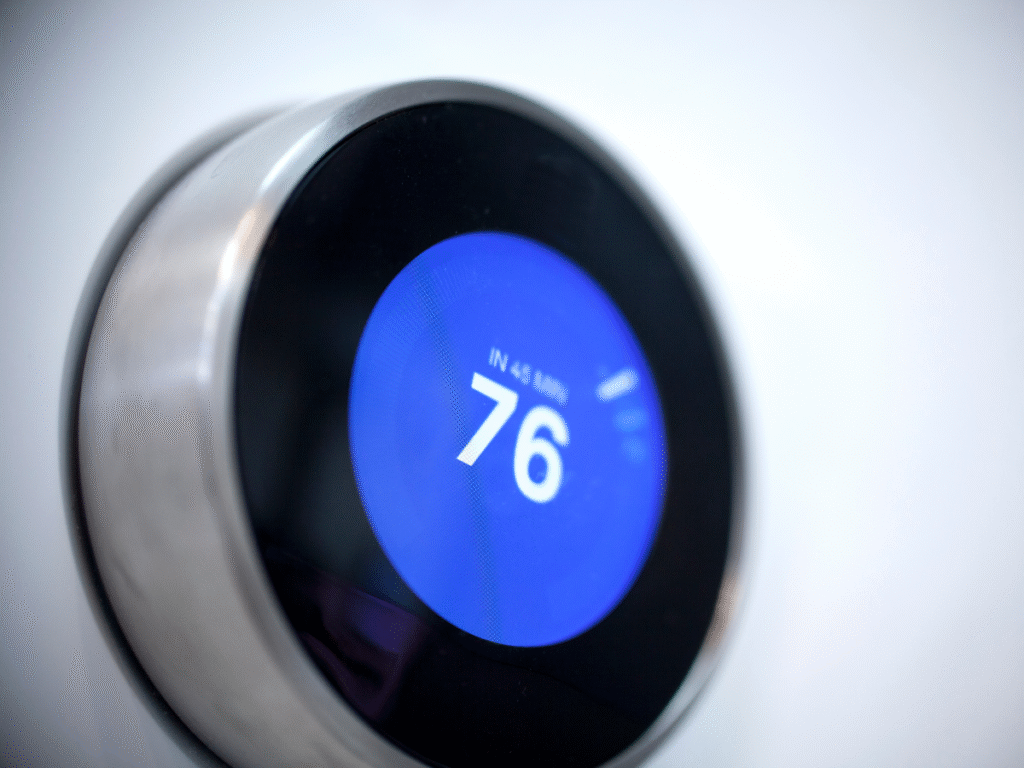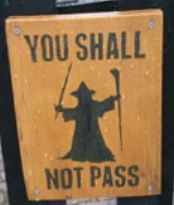On May 21, 2025, the Federal Circuit en banc banished the notion that the reliability of an expert’s methodology under Federal Rule of Evidence 702 (“Rule 702”) is a question of weight, not admissibility. The en banc Court vacated a jury’s award of over $20 million in damages and reversed the district court’s denial of a new trial on damages because an expert’s testimony was based on insufficient facts.

Plaintiff EcoFactor sued various manufacturers of smart thermostats in the Western District of Texas for infringement of various combinations of its patents some of which culminated in portfolio licenses for lump sum settlements. EcoFactor then sued Google, alleging Google’s “Nest” thermostats infringed EcoFactor’s patents. But its claims collapsed one by one, leaving EcoFactor a single narrow bridge to success: its ’327 Patent.
At trial, EcoFactor’s damages expert opined that other licensees had agreed to a rate of $X/unit, and thus this represented a reasonable starting point and ultimately ending point for his analysis of what Google should pay. The expert relied on the terms of three previous settlement licenses and certain statements made by EcoFactor’s CEO. All three licenses recited this $X/unit rate only in unilateral “whereas” clauses which attested only to EcoFactor’s belief. However, the mutually agreed provisions of two of the licenses explicitly stated that their lump sum amounts were not based on sales or indicative of a per unit royalty. The mutually agreed portion of the third license agreement was silent as to the rate. Also, EcoFactor’s CEO never knew the sales volume of the licensees, and thus the CEO’s assertion that the lump sums corresponded to an $X/unit royalty at most reflected the CEO’s beliefs.

Google moved to exclude EcoFactor’s expert’s opinion under Rule 702 as based on unreliable facts and methodologies. Rule 702 requires that expert testimony be made by a qualified expert, based on sufficient facts or data, the product of reliable principles and methods, and reflect a reliable application of the principals and methods to the facts and data. As co-author Ifti Zaim emphasized in his discussion of this case at the 2025 AIPLA Spring Meeting—held a week before the case was decided—while the Seventh Amendment guarantees a party the right to have a jury decide the truth of questions of fact, Daubert made clear that one may only bolster the credibility of those facts with expert testimony if that testimony is reliable. Thus, district courts must assume a gatekeeping role to ensure expert testimony complies with Rule 702 before that testimony may be admitted and reach the jury.
However, some courts frequently view admissibility disputes as challenges to the weight of the evidence properly addressed via cross-examination. Such was the fate of Google’s motion. The expert testified, and the jury awarded EcoFactor over $20 million in damages for infringement. Google stood its ground and moved for a new trial on damages, again arguing that the expert’s opinion was unreliable. Judge Albright denied Google’s motion without explanation or written opinion.
Google appealed the denial of its motion for a new trial before the Federal Circuit, arguing that EcoFactor’s $X/unit royalty rate was “plucked out of nowhere.” Judges Reyna and Lourie, the Federal Circuit panel majority, spurned Google’s appeal, finding that the district court’s decision did not constitute an abuse of discretion because the hypothetical negotiation method of calculating damages “necessarily involves approximation and uncertainty,” the expert’s testimony was supported by admissible evidence (the license agreements and EcoFactor’s CEO’s testimony), and that Google was challenging through admissibility what should be contested through cross-examination. Judge Prost dissented and opined that the majority “at best muddles our precedent and at worst contradicts it,” describing the evidence EcoFactor’s expert relied upon as “self-serving, unilateral recitals of [EcoFactor’s] beliefs,” and went so far as to call the $X/unit royalty rate “manufacture[d]” and “conjure[d] from nothing.”
Google sought a rehearing en banc. The odds of obtaining such a rehearing are quite low—previous to the Federal Circuit rewriting the law of design patent obviousness in our own 2024 case of LKQ v. GM, the last time the court heard a patent case en banc was in 2018. But Judge Prost’s fiery dissent successfully showed a clear and fundamental disagreement between members of the Federal Circuit bench as to an important point of law, one of the strongest indicators of a viable en banc challenge. The Federal Circuit granted Google’s request.
The May 21 en banc majority opinion first noted that the district court failed to “create a record suitable for review” to explain its reasoning, and this may alone have constituted an abuse of discretion. However, seemingly deliberately overlooking this issue, the majority held that the district court abused its discretion by allowing EcoFactor’s expert’s testimony because “a fundamental premise of [that] testimony—that Daikin, Schneider, and Johnson agreed to pay the $X rate—was not based on sufficient facts or data as required by Rule 702(b).”
Analyzing the language of the license agreements, which it reviewed de novo, the majority found that none of the licenses supported EcoFactor’s expert’s testimony that the licensees had agreed to the $X royalty rate because the only language suggesting as much was in EcoFactor’s unilateral recitals. And as for EcoFactor’s expert’s reliance on EcoFactor’s CEO’s testimony, the court emphasized that the CEO also did not know the sales volume of the licensees and “amounts to an unsupported assertion from an interested party.” The court reversed the district court’s denial of Google’s motion for a new trial on damages, concluding: “[t]his is not a case where the relevant evidence can reasonably support competing conclusions. … There can be no doubt that this evidence fails to provide ‘good grounds’ for Mr. Kennedy’s testimony regarding the licensee’s agreement to pay $X per unit.”
The 2023 Advisory Committee Notes to Rule 702 already suggested that decisions holding that questions of the sufficiency of an expert’s basis and methodology go to weight and not to admissibility were incorrect applications of Rule 702. This decision cements the advisory committee’s suggestion into precedent. As courts move towards more uniformly rigorous enforcement of Rule 702, it would behoove litigants to ensure the judge has the facts and analysis needed to create a defensible record for appeal. Further, Litigants should be cautious to rely on experts to bolster factual assertions unless they can prove to the judge that the expert’s testimony has sufficient basis and is reliable. Beyond the direct implications, this decision may hamper litigants’ ability to insert non-binding or factually unsupported language into early settlement agreements for the benefit of future damages cases, like EcoFactor appears to have done.
